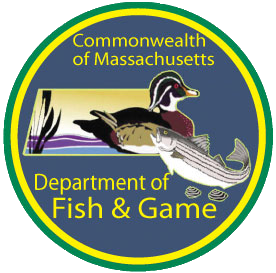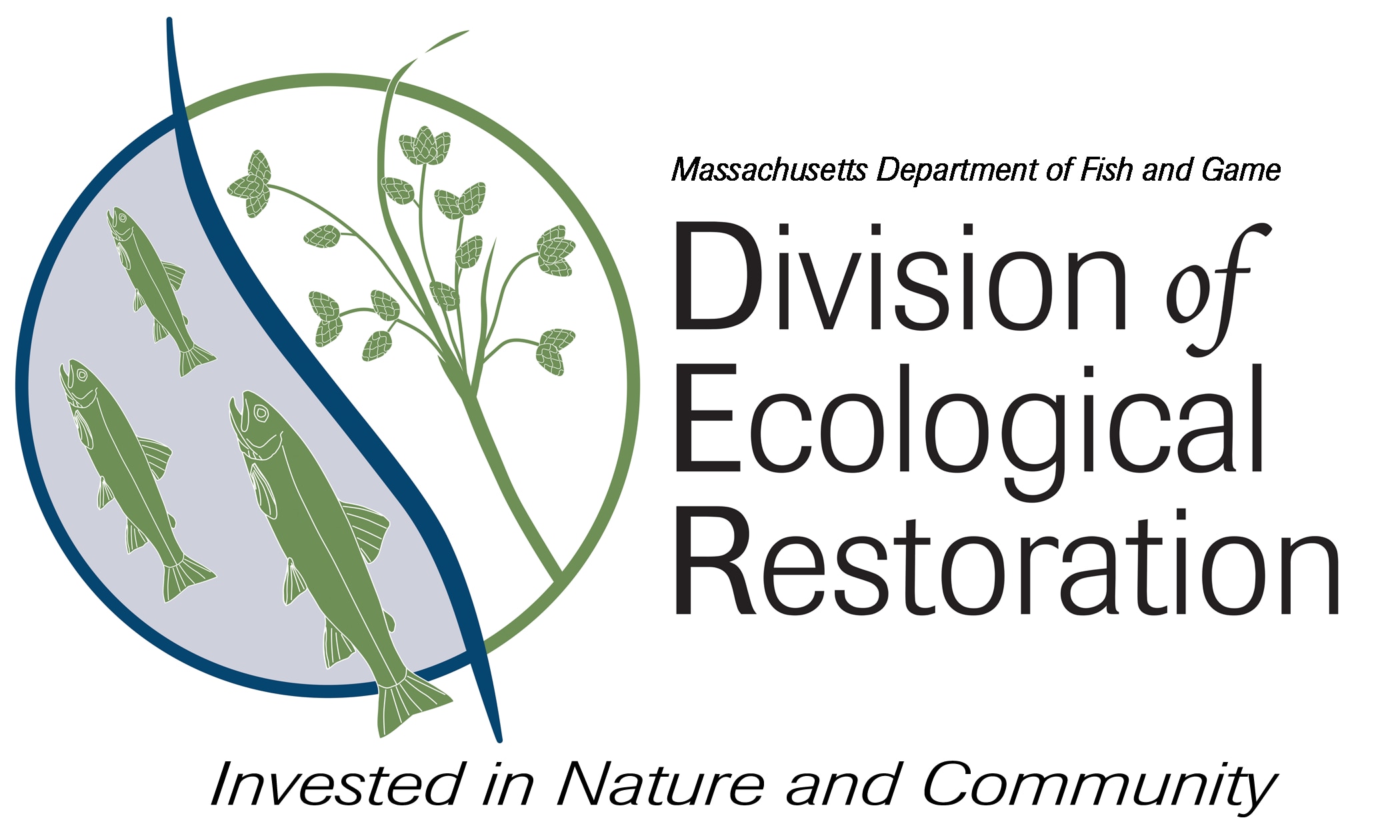- Executive Office of Energy and Environmental Affairs
- Department of Fish and Game
- Division of Ecological Restoration
Media Contact
Danielle Burney, Deputy Communications Director
CHESTER — The Healey-Driscoll Administration today announced over $6.4 million in grants to strengthen community preparedness for large storms, improve climate-ready infrastructure, restore flood storage capacities, and protect fisheries, wildlife, and river habitat.
Department of Fish and Game (DFG) Commissioner Tom O’Shea and Division of Ecological Restoration (DER) Director Beth Lambert announced the funding in Chester before visiting a culvert that recently failed because of catastrophic flooding in Western Massachusetts. The Culvert Replacement Municipal Assistance (CRMA) Grant Program is one of the many resources the administration utilizes to help municipalities replace undersized and deteriorating culverts with crossings that meet improved design standards. The grants target culverts whose replacement brings significant ecological and resilience benefits and helps municipalities deal with the increasing aging road infrastructure costs.
“With extreme weather becoming more frequent, projects like these are a climate-smart investment to help cities and towns adapt to climate change,” said Governor Maura Healey. “It is important that we upgrade culverts and small bridges to prevent flooding and reduce public safety risks. We are proud to announce these awards that will support our communities and ecosystems for generations to come.”
“Many municipalities are eager to replace their failing culverts with larger, climate-ready structures, but they often lack the technical knowledge and financial resources to do so,” said Lieutenant Governor Kim Driscoll. “This grant program fills the gap by providing both necessary funding and technical assistance to local communities.”
DER is awarding $811,000 in grants to 14 municipalities through the CRMA grant program. Nearly half of an estimated 25,000 small bridges and culverts in Massachusetts act as barriers to fish and wildlife because they are undersized or poorly positioned. Installing culverts that meet the Massachusetts Stream Crossing Standards allows rivers to flow unrestricted, improves access for fish and wildlife, and lowers the risk of flood damage.
“Undersized culverts are one of the biggest stressors on Massachusetts stream ecosystems,” said Energy and Environmental Affairs Secretary Rebecca Tepper. “Ecological restoration serves our communities and the environment by increasing climate resilience, improving habitat for wildlife, building outdoor recreational opportunities, and creating jobs.”
DER also awarded $609,825 to support three restoration partnerships through the Regional Restoration Partnerships Program and $26,000 to two Priority Ecological Restoration Projects. Two grants totaling $5 million were awarded to support the Herring River Estuary Restoration project in Wellfleet, one of the largest tidal estuary restoration projects in the North Atlantic coastal region.
“DER brings a ‘whole-of-government’ approach to restoration - building and supporting partnerships among regional organizations, municipalities, NGOs, and agencies. We believe this is the best way to achieve ecological restoration and community resilience,” said DFG Commissioner Tom O’Shea. “We are proud to see this important ecological restoration work continue with a strong relationship between the Commonwealth and passionate partners throughout the state.”
“We are excited to support such a wide array of ecological restoration projects to restore wetlands and rivers throughout the Commonwealth,” said DER Director Beth Lambert. “We look forward to working with our partners to advance restoration statewide.”
The following 14 projects were awarded grant funds through the CRMA Grant Program via DER’s Capital Budget:
Bluefield Brook Culvert Replacement Training, Ashburnham
Award: Town of Ashburnham, $61,000
The Town of Ashburnham will conduct design and engineering for a culvert replacement on Bluefield Brook, preparing it for replacement in FY24-FY25. Upgrading this culvert will mitigate flooding, increase community resilience, and improve aquatic connectivity. This project will also provide training opportunities to municipal road managers throughout the region as part of DER’s Culvert Training Initiative.
Abbott Brook Culvert Replacement, Chester
Award: Town of Chester, $54,297
This award will fund field data collection and preliminary design for two culvert replacement projects on Abbott Hill Road to improve stream connectivity of Abbot Brook.
Bromley Road Culvert Replacement, Huntington
Award: Town of Huntington, $42,000
This award will fund field data collection for two culvert replacement projects on Bromley Road which will improve stream connectivity of a tributary to the East Branch of the Westfield River.
Rock Meadow Brook Culvert Replacement, Uxbridge
Award: Town of Uxbridge, $53,524
This award will fund field data collection for a culvert replacement project on Rock Meadow Road Extension which will improve stream connectivity of Rock Meadow Brook.
Karner Brook Culvert Replacement, Egremont
Award: Town of Egremont, $48,811
This award will fund design and engineering, permitting, and some construction for a culvert replacement project on Blunt Road to improve stream connectivity of a tributary to Karner Brook.
Trapfall Brook and Tributary Culvert Replacement, Ashby
Award: Town of Ashby, $55,000
This award will fund field data collection for two culvert replacement projects on Harris Road to improve stream connectivity of Trapfall Brook and a tributary to the Brook.
Elmer Brook Culvert Replacement, South Hadley
Award: Town of South Hadley, $50,000
This award will fund the design and engineering for a culvert replacement project on Pearl Street to improve stream connectivity of Elmer Brook.
Kettle Brook Culvert Replacement, Leicester
Award: Town of Leicester, $32,325
This award will fund field data collection for a culvert replacement project at the intersection of MA-56 and Marshall Street to improve stream connectivity of Kettle Brook.
Sleepy Hollow Road Culvert Replacement, Richmond
Award: Town of Richmond, $55,200
This award will fund the design and engineering for a culvert replacement project on Sleepy Hollow Road to improve stream connectivity of Cone Brook and two tributaries.
East Meadow River Culvert Replacement, Haverhill
Award: City of Haverhill, $87,000
This award will fund field data collection for a culvert removal and replacement project on Brandy Brow Road to improve stream connectivity of the East Meadow River.
Housatonic River Tributary Culvert Replacement, Great Barrington
Award: Town of Great Barrington, $55,933
This award will fund the design and engineering for a culvert replacement project on Brush Hill Road to improve stream connectivity of a tributary to the Housatonic River.
Mann Pond Tributary Culvert Replacement, Norfolk
Award: Town of Norfolk, $67,910
This award will fund the design and engineering for a culvert replacement project on Seekonk Street to improve stream connectivity of a tributary to Mann Pond.
Bassett Brook Culvert Replacement, Raynham
Award: Town of Raynham, $75,000
This award will fund field data collection for a culvert replacement project on Pine Street to improve stream connectivity of Basset Brook.
North Meadow Brook Culvert Replacement, Tyngsborough
Award: Town of Tyngsborough, $73,000
This award will fund field data collection for two culvert replacement projects on Dunstable Road and Red Gate Road to improve stream connectivity of North Meadow Brook.
DER’s Regional Restoration Partnerships Program was established in 2021. This Program builds the capacity of local and regional organizations to collaboratively advance restoration work. Pairing partner strengths with the state's investments empowers networks of partners to restore rivers and wetlands and helps people and nature adapt to climate change. Three Partnerships in this Program were awarded funding from DER’s Capital Budget:
Berkshire Clean, Cold, Connected Restoration Partnership
Award: Housatonic Valley Association, $199,899
This Partnership supports a network of organizations, agencies, and communities working for healthy aquatic systems and building climate resiliency in the Hoosic, Housatonic, and Farmington River watersheds. The Partnership will build local and regional capacity for planning and implementing restoration projects, such as habitat connectivity projects (culvert upgrades and dam removal) and stream corridor restoration projects (floodplain reconnection, in-stream habitat enhancement, and riparian buffer restoration).
Buzzards Bay Watershed Restoration Partnership
Award: Buzzards Bay Coalition, Inc., $209,987.510
This Partnership supports a network of towns, local land trusts, and private landowners throughout the Buzzards Bay region working to implement strategic ecological restoration, land conservation, and climate-resilient projects. The Partnership will build local and regional capacity for restoration and will pursue high-priority projects such as river and stream barrier removal, salt marsh restoration, and wetland restoration on retiring cranberry farms.
Merrimack Restoration Partnership
Award: Merrimack River Watershed Council, $199,938.75
This Partnership supports an expansive network of partners working to develop a strategic, watershed-scale restoration and climate-resilient vision for Nashua, Lower Merrimack, Sudbury Assabet Concord, Spicket, Shawsheen, Beaver Brook sub-watersheds in Northeast/ North Central Massachusetts. The Partnership is also leading ecological restoration planning and education activities. This funding will be used to support high-priority dam removal, culvert replacement, and floodplain restoration projects.
The Priority Projects Programis one of the vehicles by which DER pursues restoration projects that present the greatest benefits. The established Priority Projects that are receiving funding include dam removal, cranberry bog restoration, and an estuary restoration project, which will restore healthy habitat and provide benefits to Massachusetts communities, such as addressing the expected impacts of climate change. Once completed, these Priority Projects will provide significant social, environmental, and economic benefits to the Commonwealth and local communities.
The following two projects were awarded funds through DER’s Priority Projects Program via DER’s Capital Budget:
Ipswich Mills Dam Removal, Ipswich
Award: Ipswich River Watershed Association, $20,000
The goal of this project is to remove the head-of-tide Ipswich Mills Dam. Removing the dam will reconnect the Ipswich River with the ocean to benefit resident and migratory fish species, including river herring, American shad, sea lamprey, striped bass, and American eel. In addition, dam removal will eliminate a liability and maintenance burden for the Town and improve water quality within the impounded river reach upstream of the dam.
Cranberry Bog Preconstruction for South Meadow Wetland Reserve, Carver
Award: Edgewood Bogs LLC, $6,000
The goal of this cranberry bog restoration project is to restore wetlands, eliminate barriers to fish and wildlife movement, enhance habitat, and provide opportunities for the public to access the site. The award will provide a grant to the landowner and project proponent to advance the project.
To review a full list of active ecological restoration Priority Projects throughout the state, please visit DER’s Priority Projects Map webpage.
Lastly, two grants were awarded to support the Herring River Estuary Restoration project, one of the largest tidal estuary restorations ever undertaken in Massachusetts and the North Atlantic coastal region. Chosen as a DER Priority Project in 2004, this project will restore around 890 acres of degraded salt marsh and estuarine habitats once completed. It will also improve diadromous fish access to hundreds of acres of ponds and restore a significant area of shellfish habitat.
The following two projects were awarded funds via DER’s Capital Budget:
Herring River Estuary Restoration, Wellfleet
Award: Town of Wellfleet, $4,400,000
The goal of this project is for continued support of construction. The award also matches and leverages $29 million in federal funds from the USDA Natural Resources Conservation Service to be used for construction.
Herring River Estuary Restoration, Wellfleet, and Truro
Award: Friends of Herring River, $600,000
The goal of this project is to work with partners to administer and coordinate non-construction funding awards, contracts, and technical tasks to support the project and project team as construction proceeds, including administrative, technical, regulatory compliance, outreach/communications, monitoring, and project coordination tasks.
###

